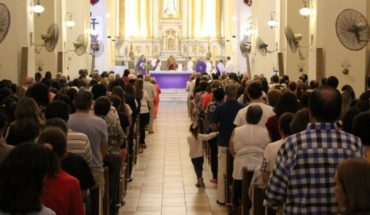We live a hot, hard and hostile climate in Chile due to the debate around the proposed text of the new constitution This circulates in the street, enters our homes through social networks and the most traditional media as well: it seems that the act of reading the text has become the centerpiece of public discussion.
At the Santiago International Book Fair in 2003, we were visited by the outstanding philosopher Gianni Vattimo. In a solemn tone, he opened his exhibition by stating: “There are no facts, there are only interpretations.”. Indeed, although it generates resentments in those who love the truth that they themselves profess, the “human world” is a game and, as Paul Ricoeur would say, a conflict of interpretations. Language is not the language we speak, but the condition in which we inhabit the world. The word Logos, from which the word dialogo(s) derives, comes from ancient Greek and cannot be translated unequivocally.
For Heraclitus, the logos revealed a meaning to be heard. The sage’s own thing is to listen to the Logos. (Frag N°50). From another tradition, the Gospel of John begins its narration with this word, translated as Word and sometimes also as Word. “In the beginning it was the Word, and the Word was God.” The Logos refers to the meaning, above all of oneself and the other, and then to the possibility of recognition, The word said, not only in the Constitutional Convention of Chile, establishes, institutes, and constitutes the world expressed by it. That is why promises are said aloud, and others more formal, are written even in front of a notary: the word contains a symbolic efficacy.
The constituent text in Chile, in terms of its achievement and genesis, is probably unique in the world. The elements of inclusion of indigenous peoples, and parity he described it as “good” even before it was written. At the same time, the opening ceremony of the constitutional convention already reflected a break of the Word: one elected to the convention dedicated herself to “talking” to the Minister of Faith of the opening act of the constituent work.
The diá-logos listening and speech were altered from the beginning and a revenge and blindness of all the groups involved in the text writing was activated. It is a break that we lived a while ago, even before the social outbreak, and that we continue to experience. As Hannah Arendt observes, violence arises when the word goes silent.
Political blindness can have opposite forms in its concreteness, but coincident in the denial of the Word. On the one hand, there are the fundamentalists, where the “truth” of the constituent text is reduced to what is written (or not) literally. The word “own house” is not in article 51, therefore, the validity of the social right to decent housing, which affirms the same article, is called into question. On the other hand, there are the interpreters, not of what the text literally says, but of what they would like it to say, to justify their plebiscitary option.
There are no facts, there are only interpretations, but if the “correct” interpretation depends on a couple of people, obviously we are not facing only a hermeneutic problem, but a political and democratic problem of proportions. A constitutional text is something legally interpretable and at the same time condenses values and convictions, acquiring a symbolic cement role of a country. It is a political text that should welcome and at the same time express the entire political community. In this way, the Constitution is not only a closed text in itself, and that we must know how to understand from the cognitive dimension, but the means that opens the world of the possible that we long for and share for Chile. To eliminate the task of interpretation, always respectful of the literal aspect of the text, is nonsense. It is necessary to emphasize the border between legitimate interpretation and falsehood, in an era full of the use of fake-news. But, it is known, stopping to distinguish costs time and fatigue.
Let’s take care of the text, context and action of taking the floor: we deserve and need a more conscious public discussion based on a basic ingredient for coexistence: trust.
Follow us on
The content expressed in this opinion column is the sole responsibility of its author, and does not necessarily reflect the editorial line or position of El Mostrador.





